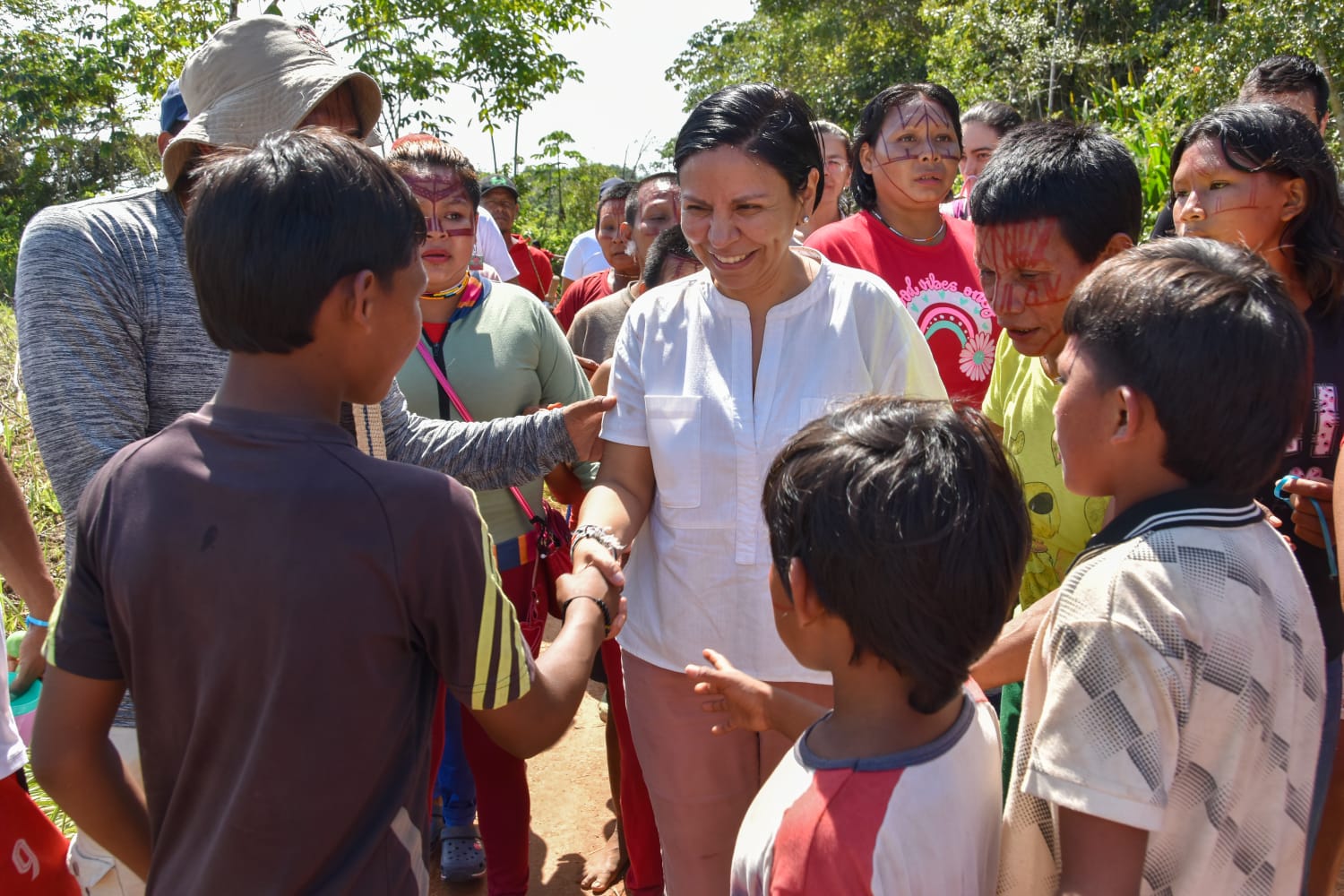The former director of the Victims Unit is an Embera Chamí lawyer, trained in the Indigenous movement, and a former commissioner of the Truth Commission. Until June 2024, she was in charge of one of the largest bureaucracies in Colombia, responsible for attending to more than 9,000,000 victims of the armed conflict. In April, President Gustavo Petro asked for her resignation. The newspaper El Colombiano suggests this was due to disagreements the president had with her management in updating the Victims' Law, poor budget execution, and political differences. Patricia is a thinker with a gift for words, someone I could listen to for hours. Before arranging this interview, we met in a café. She arrived with her bodyguard, who entered first and scanned the place. It was a striking and concerning moment, reflecting the security situation in my country. Patricia entered behind him. We greeted each other and started talking.
Marcela Velasco Jaramillo (MVJ): Your resignation suggests that the Victims Unit, an institution with a significant budget, has also been affected by political pressures and interests.
Patricia Tobón Yagarí (PTY): I believe that only time will tell if the Unit has entered into that logic. What I have said is that, in my experience, I faced not just insinuations but direct reproaches of that nature, to which I never yielded. This is an entity that has been politicized and used for clientelism. We have reported acts of corruption, such as those involving the Reparations Fund. We have been accountable and made significant changes, such as not succumbing to political clientelism. While recognizing that the government has political agreements, we did not hand over public resources meant for victims of corruption. This is important to say. Until the last day, I remained consistent with the policy of change announced by the Government of Gustavo Petro and Francia Márquez.
MVJ: What are the possibilities for leaders from ethnic communities to be in power?
PTY: My advice to other leaders is to seek positions of power while maintaining a collective voice. Experience has shown us that an individual, bureaucratic voice that remains silent neither transcends nor brings about significant change. That’s why I firmly believe in the importance of collective character and the need to continue demanding from the state. I come from the indigenous world; I was born and raised in the indigenous movement, and I am a leader with that commitment. For many years, we have been fighting and demanding that numerous officials uphold the rights of our peoples. Now, from the other side, I demand this from the entities. The presence of people who come from this reality in public and political decision-making makes a difference, as we make decisions in favor of those rights. Social movements shouldn’t just keep demanding from the streets while others, without knowing our realities, make decisions from a desk.
MVJ: Is it relevant for ethnic communities to engage with the state?
PTY: It is important for social movements to be part of institutions, not merely to fill bureaucratic positions but to achieve genuine inclusion. While we have had Indigenous or Afro-descendant bureaucrats in positions of power, many have refrained from defending our rights out of fear of losing their jobs. I recognize that this government has shown a willingness to address Indigenous issues, respecting Indigenous leaders who come, not to applaud but to demand political coherence in response to our communities. Upholding this ethical stance has involved internal discussions with other ministries and technical teams, akin to the struggles we faced in the Indigenous movement, but now from positions of leadership.
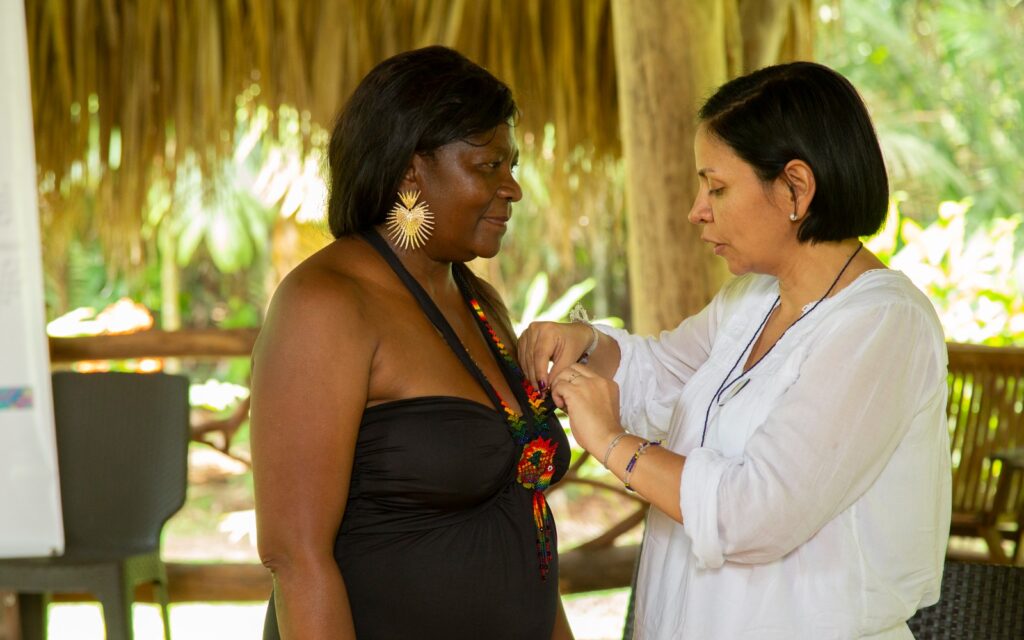
MVJ: What achievements would you highlight from your tenure?
PTY: At the Unit, we accomplished significant goals in the National Development Plan. Through the Indigenous Concertation Table, we aimed to address claims that indigenous peoples had with this institution for over a decade, which had been denied due to prejudicial decisions, a lack of understanding of the regulations, or institutional racism. For instance, in 2011, the government of Juan Manuel Santos approved decrees for Indigenous, Afro-descendant, and Romani victims that were never implemented. We are working to regulate those provisions as well as the Constitutional Court ruling C-588/19 from 2011.
MVJ: Are there prejudices against officials from ethnic groups?
PTY: I led one of the largest entities for social inclusion and faced skepticism about my ability to deliver results. I remember public comments questioning how an indigenous woman could coordinate such an important policy. I was well-prepared, with experience in various fields and academic degrees in constitutional and international law, in addition to being a commissioner. I met all the requirements. Nevertheless, doubts persisted. However, I earned respect for my leadership by demonstrating that Indigenous peoples can be entrusted with public positions in the country. We are reliable and prepare ourselves adequately when given the opportunity. We lead our own organizational processes and can also serve the country in leadership roles. I came with dignity to show that we can fulfill the tasks that the country needs us to. We must convey the message that indigenous leaders can manage broader areas of public policy, not just specific issues related to ethnic communities.
MVJ: You also represented victims who are not from ethnic groups. How have they felt represented by you?
PTY: The majority of victims are not from ethnic groups, and 80% of the population I serve is non-ethnic. The 600,000 compensation payments made have primarily gone to that population. However, we also needed to fully address ethnic issues, as they were more underserved. We had to resolve some methodological points that had been overlooked, such as the issue of begging among displaced populations, both ethnic and non-ethnic. There are individuals who have ended up homeless or forced into prostitution. These are issues I have addressed at all levels. That’s why we established agreements with municipalities and governors to comply with the National System for Attention and Comprehensive Reparations for Victims. This has been a significant achievement of this government. While we have met investment and compliance targets, the population that has benefited the most has been the non-ethnic one. In the first six months, I found a backlog and we managed to execute over 90%. Last year, we completed the entire execution, and now we rank third in compliance within the Government. Additionally, I earned respect as the head of a team that is predominantly non-ethnic, some of whom held prejudices.
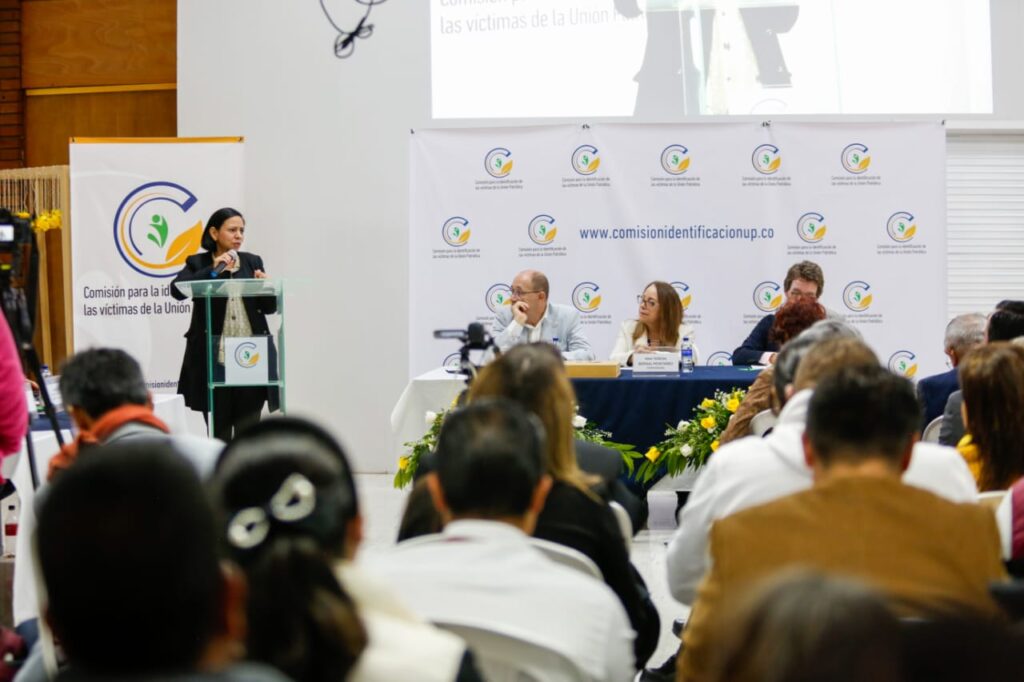
MVJ: Colombia is culturally diverse, but interethnic and intercultural relationships are tense and marked by cultural, ethnic, and economic issues. How can we build a more intercultural and respectful country that honors its diversity?
PTY: The Truth Commission analyzed how sociopolitical violence in Colombia is rooted in ongoing colonial relationships and structural racism, which hinder the development and inclusion of narratives that could change power dynamics. This manifests in the imposition of perspectives that exclude these groups from participating in the formulation of public policies that affect them. The commission highlighted that the colonial past and racism have perpetuated cultural divides. To reverse this, it is essential to implement intercultural policies that acknowledge the history and rights of these Peoples. Without efforts in education, communication, and integration, we will not make progress in intercultural processes. Recommendations were made in the ethnic chapter to help society understand that the country’s development is linked to the development of ethnic groups.
MVJ: What role did the 1991 Constitution play?
PTY: The various moments of advocating for ethnic rights have opened significant avenues. The 1991 Constitution created opportunities. The peace process also enabled people like me to lead institutions like this one. These institutions are expected to facilitate structural transformations to foster interculturality. This involves recognizing the diverse developmental needs of different regions, as well as highlighting the contributions of the Black population and Indigenous peoples to the environment. This was a topic that was previously not addressed. While the discourse is positive, we still face significant challenges in practice.
MVJ: The attacks by armed groups on Indigenous, Afro-Colombian, and peasant communities have caused a collective trauma that weakens the social fabric, customs, and governance structures of these communities.
PTY: We are confronted with a country filled with diverse narratives that fail to comprehend our reality, compounded by a colonial narrative rife with prejudice and polarization. Indigenous people are often labeled as collaborators of the state or guerrillas, which, instead of contextualizing the situation, legitimizes violence and justifies hatred and racist discourse. This normalization and dismissal of violence against indigenous peoples perpetuates their suffering. The violence intensified even further with the armed conflict. In the Truth Commission, we stated that Indigenous peoples have endured a continuum of violence and not only have we failed to recover from the traumas suffered by our grandparents and parents, but we are also facing violence in the present. This has resulted in not just a collective trauma but also the extermination of our cultures and communities, with profound effects on our society.
MVJ: What are the consequences of this collective trauma?
PTY: Although Indigenous resistance strives to overcome these challenges, the damage is disproportionate. There are alarmingly high levels of suicide, family disintegration, and a weakening of our autonomy as Indigenous governments and communities. The violence from drug trafficking groups has co-opted and threatened leadership. In some communities, leaders cannot enter due to the risk of being killed. As a result, community organization and the resolution of issues through self-governance become impossible, as the armed group controls the territory and subjugates the population.
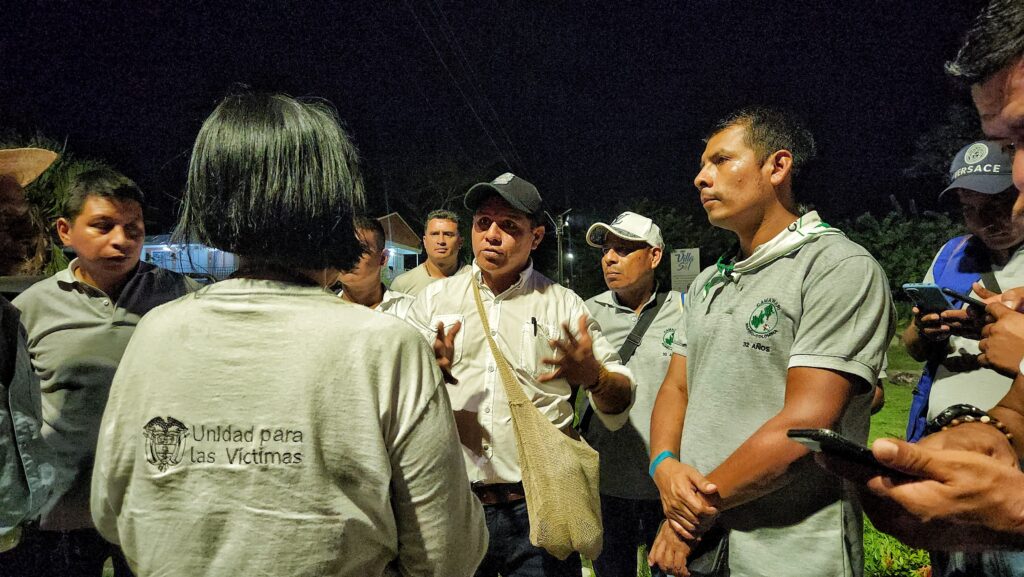
MVJ: Is the Victims Unit and the Government concerned about the impact of these collective traumas on ethnic groups?
PTY: There is a profound misunderstanding of ethnic issues within Colombian society and among many public officials, even within this government. It is essential to contextualize these matters so that institutions can address them appropriately. However, this is a monumental task that goes beyond this government and reveals a historical debt. For example, the situation of the Embera population, engaged in begging, reflects a lack of adequate interventions since the 1970s, when the National Liberation Army (ELN) entered their territories, leading to confrontations and disintegration within their communities. The lack of understanding of these issues has resulted in a reliance on assistance-based measures instead of empowering Indigenous governments to solve their own problems, organize their territories, and promote their own development. Historically, the policies implemented have fragmented communities, creating divisions rather than fostering cohesion. It is crucial for the State to adopt indigenous methodologies that prioritize the genuine well-being of communities, not that of bureaucracies.
MVJ: What perspectives can you share about being a woman in a public position of this caliber?
PTY: I believe that earning respect within the Indigenous movement, where there is significant inequality in women’s participation, taught me how to navigate a male-dominated environment, to gain respect, and lead in a world where Indigenous women often participate but lack power. For the Indigenous movement, it is crucial to enhance the leadership and participation of women. When we strengthen our governance capacity, we send a clear message: it is possible. Today, I demonstrate that Indigenous peoples and women can govern, which also carries ethical responsibilities toward the country and necessitates addressing issues beyond just indigenous and ethnic matters. Maintaining consistency with our historical struggle is essential.
MVJ: And what about your time at the Truth Commission?
PTY: Being part of the Truth Commission as an Indigenous woman and the youngest member exposed me to many prejudices. I was able to work with strength and solid arguments. When I joined the Victims Unit, I carried that experience and strength with me. Here, one confronts the sociocultural expression of machismo in everyday life, something all women face in any position of power. However, I always tried to be mindful of my strength, which can surprise some men. I believe that when one prepares, argues, and demonstrates the power of ideas, prejudices begin to break down. This fosters a re-education of those with whom one interacts.
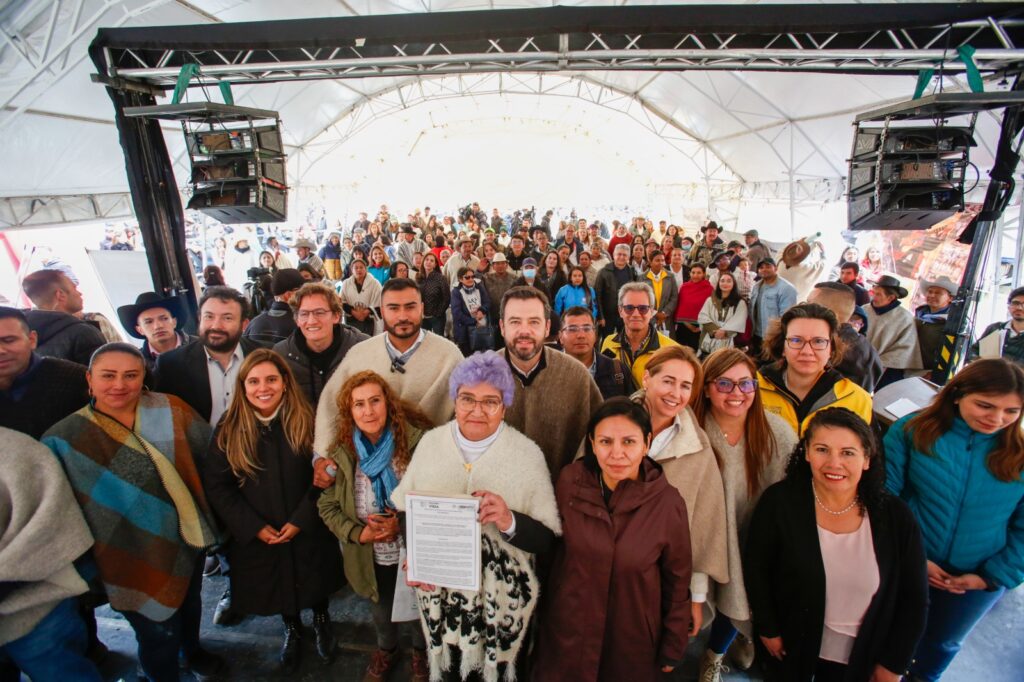
MVJ: Are there any customs, knowledge, or principles of the Embera people that have helped you?
PTY: Yes. The first principle is that it is always important to think big and be open to listening, considering proposals as opportunities and to build from different points of view rather than seeing them as antagonisms. By doing so, I integrated many visions and transformed participation processes into true spaces of inclusion to develop agendas. Secondly, it is crucial to fulfill the agreements made. It’s not about assuming that one knows everything and decides everything; it’s a collective and participatory construction. This reinforces the commitment to the community’s well-being and the effectiveness of our joint work.
MVJ: Have they had a positive impact on your management?
PTY: These principles and values have not only allowed progress but also strengthened the trust and participation of victims with the unit, restoring lost trust in the State and bringing the State closer to the community. This involves working as we do in Indigenous communities: government to government. This is where the situation of the institutions is truly explained, and the reality of the communities is understood, leading to agreements to establish joint goals. Additionally, we have chosen technical teams composed of social and ethnic leaders, which is a highlight of this entity. The territorial directors are leaders who come from communities that have fought for their rights. This social commitment is fundamental, meaning it’s not just about a paid position but a true commitment to the victims. This ensures greater effort and dedication. Therefore, all those community work methodologies that I have promoted are reflected here in the Unit.
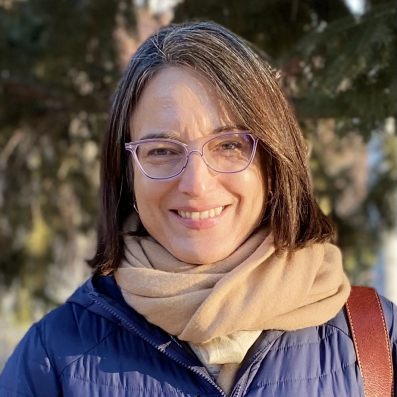
Marcela Velasco is an Associate Professor of Political Science at Colorado State University and an advisor to the Jenzerá Working Collective.
